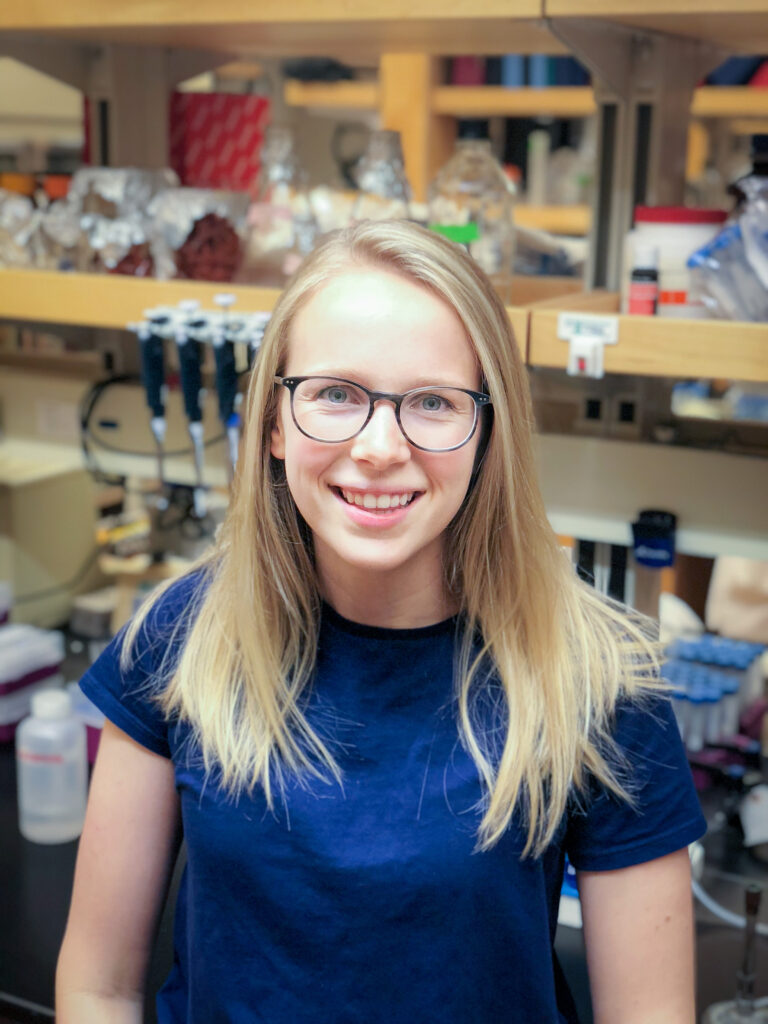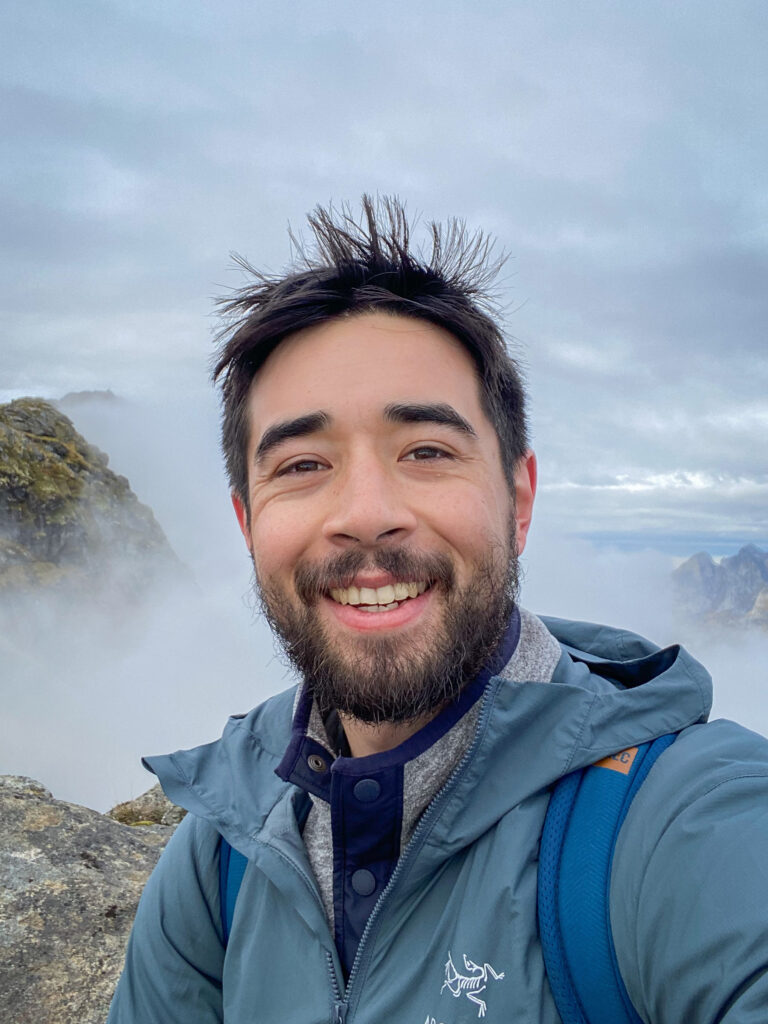Awards and recognition
Anne-Sophie Sack and Jacob Wardman awarded 2021 William and Dorothy Gilbert scholarship
Two outstanding graduate students, Anne-Sophie Sack and Jacob Wardman, have been selected as the 2021 William and Dorothy Gilbert scholarship recipients. This scholarship, established in 1995 by Professor Terrance Snutch in honour of William and Dorothy Gilbert of Santa Fe, New Mexico, recognizes the exceptional accomplishments of doctoral students working in the Michael Smith Laboratories.
 PhD candidate Anne-Sophie Sack (she/her) has been part of the MSL community since 2017 when she started as a Masters student in Dr. Terry Snutch’s neuroscience lab. She began her doctoral studies in 2019, with a focus on studying calcium channels in the brain and their functional connection to traumatic brain injury and its impacts, including the risk of developing epilepsy. Calcium channels are proteins in cells that allow calcium to flow into them. Calcium flowing into a brain cell (neuron) can shape its activity. Sack is studying specifically how some of these channels may be affected by brain injury, leading to neurological problems.
PhD candidate Anne-Sophie Sack (she/her) has been part of the MSL community since 2017 when she started as a Masters student in Dr. Terry Snutch’s neuroscience lab. She began her doctoral studies in 2019, with a focus on studying calcium channels in the brain and their functional connection to traumatic brain injury and its impacts, including the risk of developing epilepsy. Calcium channels are proteins in cells that allow calcium to flow into them. Calcium flowing into a brain cell (neuron) can shape its activity. Sack is studying specifically how some of these channels may be affected by brain injury, leading to neurological problems.
“My central guiding question is how does an event like a traumatic brain injury transform a healthy brain into one capable of generating and sustaining seizures?” says Sack.
Sack’s work is currently at the stage of investigating how under “normal” or healthy conditions calcium channels contribute to the activity of a single neuron. She is also investigating how calcium channels shape the activity of populations of neurons within a brain region and the communication with other brain regions. The understanding of calcium uptake in cells has additional implications for the downstream effects of things like gene regulation, learning and memory.
“I get excited about decoding how all these different types of channels are interacting to allow neurons to fire in a particular pattern. There is a lot of information to glean from how a single neuron fires upon stimulation, its similar to understanding the language they are using to communicate with other neurons and other brain regions,” explains Sack.
There is a lot more work to do by translating these findings about the healthy functioning of brain cells to a better understanding of damaged ones. Awards like this support important ongoing work in the lab for students and help to encourage them to continue these long research journeys. Sack reflects,
“I think it’s really great the Michael Smith Laboratories has these types of scholarships to both support the forward progress of our research but also acknowledge the work that we do.”
Sack is wrapping up the foundational experiments of her research on single cells and is now moving forward by exploring these concepts in the larger brain circuit. It will be fascinating to see how this research will contribute to a better understanding of brain health in the coming years.
 The second Gilbert scholarship recipient, Jacob Wardman (he/him), joined the Withers lab as a PhD candidate in 2017. He is now closing in on his PhD defense, likely in early 2023. Wardman is a passionate scientist in the field of glycomics, with a specific interest in glycosidases (enzymes which break down carbohydrates). One current focus of the Withers lab is the role of carbohydrates in signaling and better decoding the roles carbohydrates play in cellular activities. Wardman explains,
The second Gilbert scholarship recipient, Jacob Wardman (he/him), joined the Withers lab as a PhD candidate in 2017. He is now closing in on his PhD defense, likely in early 2023. Wardman is a passionate scientist in the field of glycomics, with a specific interest in glycosidases (enzymes which break down carbohydrates). One current focus of the Withers lab is the role of carbohydrates in signaling and better decoding the roles carbohydrates play in cellular activities. Wardman explains,
“How you dress, that says something about yourself. A lot of these carbohydrates are present on the cell exterior and that tells us something important about the cell itself and how it chooses to communicate with its environment. What we’re trying to do is better understand what that cell is trying to say.”
As with established fields like proteomics and genomics, this type of research aims to help the scientific community better understand the applications of this class of macromolecules in cell function and for scientific innovation. Understanding how certain carbohydrates can change the function of proteins will be a key area of research for future applications across many fields.
“I’m looking at developing tools that allow you to selectively build up and degrade certain carbohydrate structures. Essentially, we are discovering and engineering enzymes that are capable of carrying out different cellular manipulations that could apply to other’s research. We hope to eventually make enzymatic tools like this available to the broader research community.”
Glycomics is a burgeoning field of research working towards foundational scientific discoveries that many other fields might benefit from. By better understanding these intercellular processes, this research could foster discoveries related to human health like universal blood type conversion and immunology and oncology applications.
“There’s a lot of things we don’t know in this field so there’s a lot of room for discovery. This is just the beginning of creating these tools and understanding the potential future applications. That’s really exciting to me.”
We share Wardman’s enthusiasm for what the future holds, especially thanks to the meaningful contributions of researchers like himself and Sack. Congratulations to both these exceptional scientists on their achievements so far. We are grateful to have them in our midst here at the MSL.